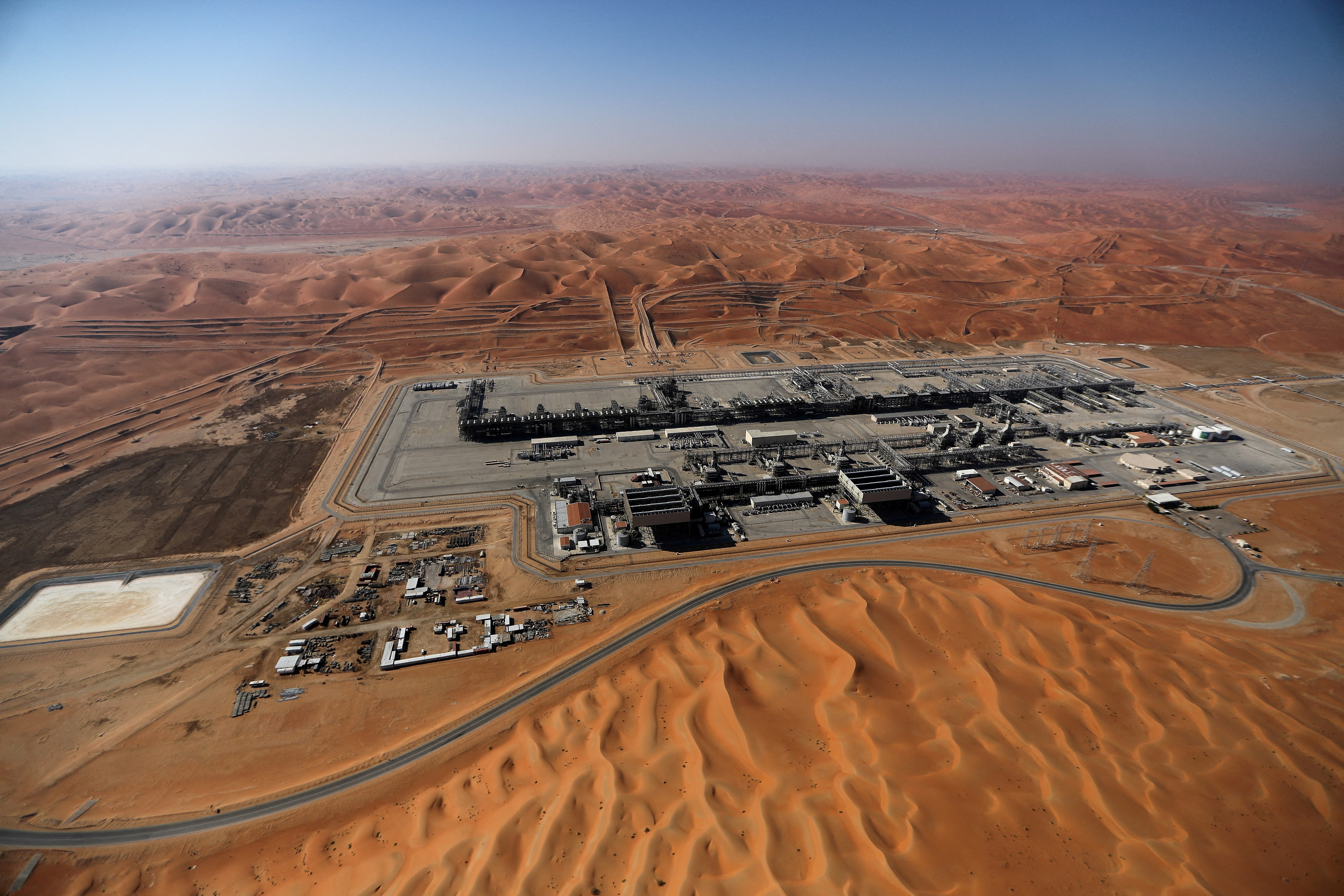Gaza, IDF, Hamas, Netanyahu, famine, terrorism, genocide, and on and on: the loud, incessant clatter of local issues and tactical moves almost drowns out the low, grinding noise as the Middle East shifts inexorably into a new strategic alignment. But it’s happening, and it’s still about oil, sort of.
Israel has no oil, and the Palestinians have nothing worth stealing except their land. Iran and Saudi Arabia are much bigger, but they would be no more important in strategic and economic terms than Thailand and South Africa if they weren’t jointly sitting on 29 per cent of the world’s oil reserves.
In terms of exportable oil reserves, these two countries facing each other across the Gulf own around half the oil in the world that could potentially be sold on the international market. That matters, because for all the talk about ending fossil fuels, we are still a very long way from the Promised Land.
That’s true even for the United States. “We’re not getting rid of fossil fuels,” US President Joe Biden said in 2020. “We’re getting rid of the subsidies for fossil fuels, but we’re not getting rid of fossil fuels for a long time.” And the US still cares about Middle Eastern oil, too, even though it no longer imports much itself.
Fracking technology has restored the US to its old position as the world’s Number One oil producer, but it still sees the Middle East as strategically important because it is the world’s greatest economic and military power and a dedicated player of the great-power game.
Most of America’s great-power allies and/or rivals – China, India, Japan and the bigger members of the European Union – still depend heavily on oil imported from the Gulf. Military control of access to the Gulf therefore remains a high priority in American strategy: Washington can keep the Strait of Hormuz open for its friends and close it to its enemies.
America’s major ally in the Gulf for fifty years now has been Saudi Arabia. The alliance is founded on the fact that both countries see Iran, just across the Gulf, as a dangerous enemy. The US provides the military power and Riyadh gives Washington a voracious market for US-made weapons and steady support for the US dollar.
There was only one persistent irritant in this long and cosy relationship: US support for Israel. It has never been a show-stopper, but Washington would obviously prefer to reconcile its two major Middle Eastern allies. Recently, it thought it had spotted a chance.
During the Trump presidency, the foreign policy establishment in Washington (which the Great Man normally condemns as part of the ‘deep state’) actually managed to sell him a new idea. It was the ‘Abraham accords’, which would effectively tie Israel, Saudi Arabia and the United States together in an anti-Iranian alliance – and entirely ignore the Palestinians.
This attracted Israel’s Prime Minister Benjamin Netanhayu, whose political career has been devoted to preventing the emergence of a Palestinian state. That ‘Abrahamic’ alliance (with no Palestine) would exist now if Trump had won the 2020 election – but in that case the war that Hamas launched around the Gaza Strip late last year would have come even sooner.
By 2023 the Saudi regime, and indeed most other Arab governments, had given up on the Palestinians as a lost cause. Hamas attacked Israel last October in order to kill off the ‘Abrahamic’ project and put the Palestinians back on the Arab agenda. It succeeded in the latter goal, but not in the former.
Therefore a two-state solution for the Palestinians has now become a necessary part of the Abrahamic alliance. Jewish and Arab states living side by side in peace is certainly not the outcome that Hamas wanted, and the human cost has been appalling, but a strange kind of hope has appeared.
At the same time, Netanyahu’s long-running success as the tail that wags the American dog is coming to an end. President Biden’s polling numbers are being dragged down by his exceptional patience with Netanyahu’s prevaricating government, and the US election draws near.
The sentimental attachment of many Americans to Israel survives, especially in the older generation, but the recent behaviour of Netanyahu’s government has severely eroded it among their children. Besides, in a mature great power like the United States strategic interests usually count for more than sentimental attachment in the end.
US interests and Biden’s own political future both now require that this war stops and that Netanyahu relinquishes power. Biden certainly has the means to make these things happen, and if he does not come to the right decision himself, those around him will probably impose it on him.
I’d bet on a permanent ceasefire and a hostage release within a month, six weeks tops.
Gwynne Dyer’s new book is Intervention Earth: Life-Saving Ideas from the World’s Climate Engineers







Click here to change your cookie preferences